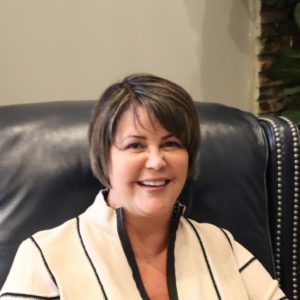 Leaders are expected to possess a culmination of all the best personal characteristics. As such, leaders often feel like they’re being pulled in a million different directions. CEOs must be unwavering, yet flexible; fearless, yet transparent. These characteristics may seem disparate, but leadership is a balancing act that requires measuring all of them.
Leaders are expected to possess a culmination of all the best personal characteristics. As such, leaders often feel like they’re being pulled in a million different directions. CEOs must be unwavering, yet flexible; fearless, yet transparent. These characteristics may seem disparate, but leadership is a balancing act that requires measuring all of them.
The best leaders cannot sit idly or inflexibly on one side of the behavioral spectrum. This adaptability debunks the debate about whether leaders should be high-thinking or high-feeling. We’re asking the wrong question if we’re forcing leaders to choose between the two.
Put strategic thinkers and empathetic leaders on a spectrum. The extremes can be rather alarming. In their most exaggerated form, high-thinking leaders are likened to executive robots. They are analytical and money-focused, with little regard for company culture. They are steadfast in their ideas and thus rarely consult others before setting their ideas into motion. This “my way or the highway” leadership style often leads to a dictatorship-like organization where one person holds all the power. When money trumps all, employees suffer.
In stark contrast, extremely empathetic leaders are so in tune with their employees’ feelings that their empathy can inhibit their ability to make difficult decisions. Because high-feeling leaders are often conflict-averse, they frequently struggle with offering constructive feedback critical to supporting their employees’ professional development. While company culture might thrive under such leadership, it can obstruct growth and thwart innovation.
Instead of asking which form of leadership is better, we should ask how we can harness the strengths of both to produce stronger leaders. The advantages of blending the rational logic of a high-thinker with the emotional support of a high-feeler are twofold: such blending promotes more skilled employees and produces more innovative companies.
Leaders are looked at as the primary problem-solvers at their organizations, but such reliance on a single savior is a limited perspective on how a company should run. Leaders solve problems, but their employees should be an essential part of the solution process.
Have you recently made a significant organizational change? A successful outcome is possible only when your team buys in, and is comfortable and prepared to transition into this next phase. The recent pandemic is a great example of why effective leadership is so important. In late March, over 16 million employees abruptly switched to remote work. Even though there wasn’t time for employee buy-in beforehand, the switch worked seamlessly for leaders who excelled in communicating with their staffers, listened to their concerns, and prepared them for a new way of work. For some leaders, the transition was so successful that they’re now able to extend permanent remote work options to employees who prefer to work outside a traditional office setting.
Why were some companies more successful at transitioning than others? High-thinking, high-feeling leaders reacted quickly and addressed the unprecedented challenges proposed by Covid-19, while also recognizing what considerations employees would need to excel in unfamiliar circumstances. Rather than laying off hundreds or thousands of employees in an attempt to cut costs, strategic, empathetic leaders did what they could to amend hardships while protecting their teams.
Employees are integral to the success of any business. Effective leaders drive growth while bolstering trust and reducing employee burnout. In that way, they harness the best of both leadership qualities, high-thinking and high-feeling.
High-thinking, high-feeling leaders are more self-aware than other leaders. Strategic thinkers are often motivated by money and hyper-focused on margins, sales and profits. Empathetic leaders are focused on keeping their team members happy at all costs. It’s easy for both types of leaders to get lost in their narrow perspectives.
Leaders who are both high-thinkers and high-feelers are typically more self-aware and do not limit their focus to one area of their company. Before these leaders assess a situation and arrive at a solution, they consider everything, meticulously weighing all scenarios and possible outcomes before introducing their views into the rest of the organization and allowing the rest of the team to share their input.
Leaders often are reactionary, instead of cautiously thinking through a decision. Self-awareness not only prepares you to lead a diverse team of employees, but also promotes innovative initiatives that can propel your company forward. Bill Gates, for example, is famous for taking two weeks a year to reflect on the future of his team and company.
Any decision you make will have consequences which can trigger positive or negative change throughout an organization. Whatever the outcome, leaders that demonstrate high-thinking, high-feeling behaviors manifest success and develop more loyal employees.
Think through every possible outcome, involve your team in your decision-making process and communicate your decisions to your team with authenticity and transparency.

Chief Executive Group exists to improve the performance of U.S. CEOs, senior executives and public-company directors, helping you grow your companies, build your communities and strengthen society. Learn more at chiefexecutivegroup.com.
0

1:00 - 5:00 pm
Over 70% of Executives Surveyed Agree: Many Strategic Planning Efforts Lack Systematic Approach Tips for Enhancing Your Strategic Planning Process
Executives expressed frustration with their current strategic planning process. Issues include:
Steve Rutan and Denise Harrison have put together an afternoon workshop that will provide the tools you need to address these concerns. They have worked with hundreds of executives to develop a systematic approach that will enable your team to make better decisions during strategic planning. Steve and Denise will walk you through exercises for prioritizing your lists and steps that will reset and reinvigorate your process. This will be a hands-on workshop that will enable you to think about your business as you use the tools that are being presented. If you are ready for a Strategic Planning tune-up, select this workshop in your registration form. The additional fee of $695 will be added to your total.

2:00 - 5:00 pm
Female leaders face the same issues all leaders do, but they often face additional challenges too. In this peer session, we will facilitate a discussion of best practices and how to overcome common barriers to help women leaders be more effective within and outside their organizations.
Limited space available.

10:30 - 5:00 pm
General’s Retreat at Hermitage Golf Course
Sponsored by UBS
General’s Retreat, built in 1986 with architect Gary Roger Baird, has been voted the “Best Golf Course in Nashville” and is a “must play” when visiting the Nashville, Tennessee area. With the beautiful setting along the Cumberland River, golfers of all capabilities will thoroughly enjoy the golf, scenery and hospitality.
The golf outing fee includes transportation to and from the hotel, greens/cart fees, use of practice facilities, and boxed lunch. The bus will leave the hotel at 10:30 am for a noon shotgun start and return to the hotel after the cocktail reception following the completion of the round.